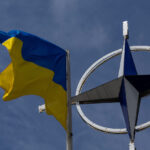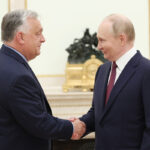The number of hybrid attacks in Europe has risen over the past six to eight months, with Russians likely behind them. Russia is conducting cyberattacks against NATO countries, political parties, and critical infrastructure using ransomware and malware. China also poses a cyber threat with its Volt Typhoon software, which it uses in critical infrastructure. NATO plans to provide a clear response to cybersecurity threats during the summit in Washington, including raising cybersecurity standards for critical infrastructure.
In NATO countries, especially in Europe, the number of hybrid attacks has increased over the past six to eight months. The situation regarding cyberattacks has also worsened.
This was reported by James Appathurai, Deputy Assistant Secretary-General for Political Affairs of the Organization.
Russia intensifies attacks
A representative of the North Atlantic Alliance stated that Russia is conducting cyberattacks against NATO countries, political parties, and critical infrastructure. Additionally, Russia uses ransomware to encrypt files and demand money for decryption, as well as to install malware, particularly in industrial control systems.
China also poses a cyber threat, particularly with the Volt Typhoon software, which is being implemented in critical infrastructure. During the NATO summit in Washington, the Alliance plans to provide a clear response to these threats.
“We are raising our game when it comes to cyberspace. This includes raising cybersecurity standards for critical infrastructure. We need to do more, but it doesn’t mean ‘an eye for an eye.’ We need to take the right diplomatic, legal, and economic steps, such as sanctions,” said James Appathurai.
He added that hybrid attacks have also significantly increased in the US and among European countries. This is evidenced by the arson of bus stations, train derailments, attacks on politicians and their property, and even murders.
“Most of the attacks can be attributed to the Russians. We went through a period when NATO countries expelled a significant number of Russian so-called diplomats, and then we saw a decline in such malicious intelligence activities. But now it is rising again, along with the full spectrum of hybrid attacks,” said the NATO representative.
It is worth noting that the publication The Times recently reported that NATO has serious suspicions that Russia may have mined critical underwater infrastructure of the European Union in the North Sea. Suspicions arose after receiving data from companies managing key oil and gas rigs, pipelines, electrical, and telecommunications cables.


